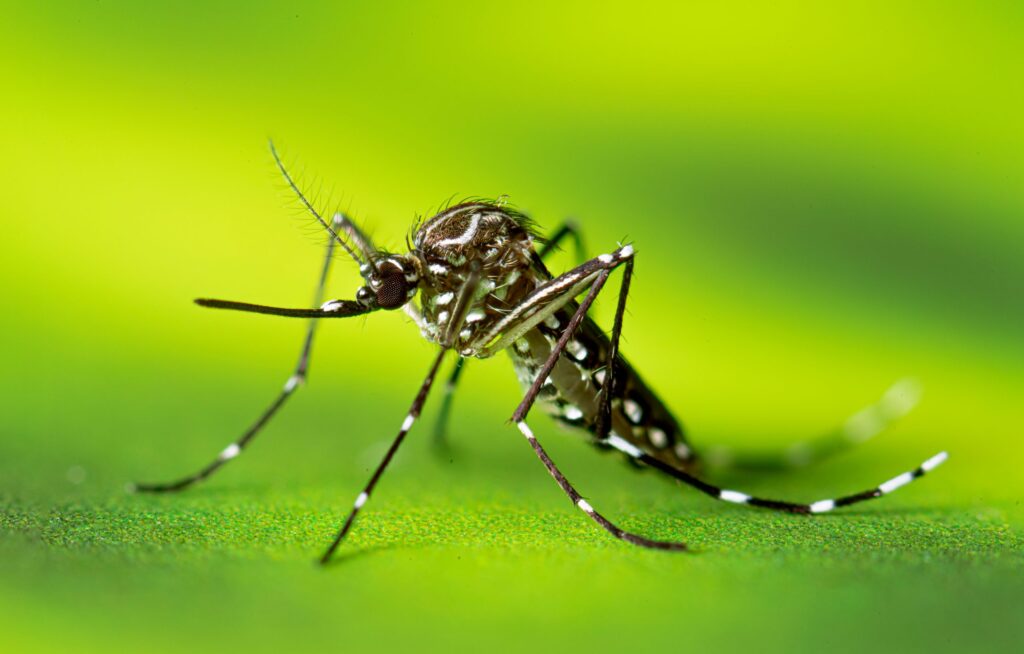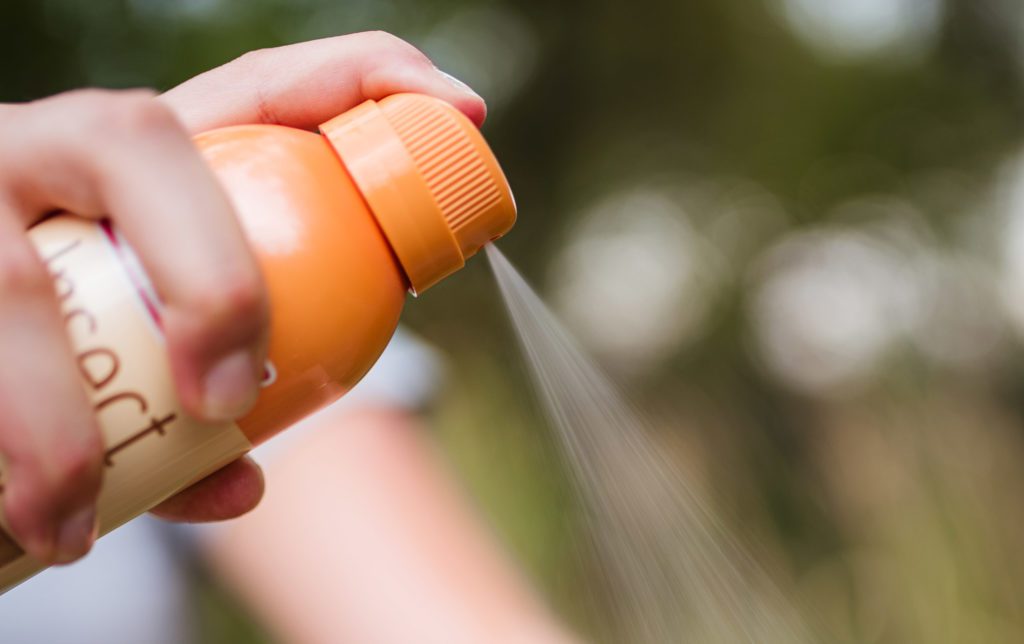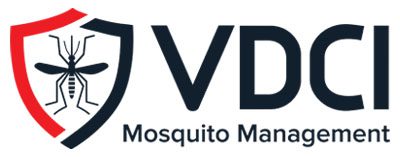Exploring the Impact of Mosquito-Borne Diseases
What? There is another virus that can be transmitted by mosquitoes?! Yes. Mosquitoes are the deadliest animals in the world, and Jamestown Canyon virus is another virus on the long list of diseases vectored by these arthropods.
What is interesting about Jamestown Canyon virus (JCV), is that it behaves a little differently than a few of the viruses the public may be more familiar with. West Nile virus (WNV) and Zika virus rely on a reservoir host to perpetuate the virus, as the mosquito cannot pass it on to their offspring. With JCV, in addition to having reservoir hosts, such as deer, this virus can also have transovarian transmission, which means the parent arthropod (in this case a mosquito) can pass the disease pathogen to their offspring. This is not completely uncommon. Rocky Mountain spotted fever is a vector-borne disease that is transmitted through an infected tick carrying the bacterium Rickettsia rickettsii. The bacterium can be transmitted to offspring in this way as well.
JCV was first discovered in Culiseta mosquitoes in Jamestown, Colorado, in 1961. Since 1961, it has been found in various mosquito species (Aedes, Culex, Coquillettidia), mammals, and humans across North America.

Is Jamestown Canyon Virus Common?
Jamestown Canyon virus is an orthobunyavirus of the California serogroup. This is the same group that was mentioned in the news last month when it was discovered that a boy in Florida had been infected with the Keystone virus, another mosquito-borne disease, that hadn’t previously been found in humans. JCV was not considered a nationally notifiable disease until a few years back, and states are not mandated to report to the CDC. Depending on local data collection, staff reporting, and even local municipal funding it’s often hard to find a clear picture of disease incidence rates. Only 9 cases of JCV, in the U.S., have been recognized by the CDC, from 2000 to 2012. In 2013, testing for the JCV antibody began at the CDC, and the number of human cases reported increased to 22 in one year! From 2014 to 2016, between 11 to 15 cases were reported each year; however, JVC is likely endemic through most of the United States. It is thought to be under-recognized in the U.S. and Canada because most cases are asymptomatic (showing no symptoms). The lack of awareness can be concerning for individuals who may be more susceptible to the disease, such as the young, elderly, and those with a compromised immune system.
*Data points obtained from www.cdc.gov
How Are Individuals Affected by Jamestown Canyon Virus?
JCV is transmitted during the summer by a few different mosquito species within the United States and Canada. As far as the severity of the disease goes, about 68% of reported cases to the CDC have been considered neuroinvasive (capable of infecting the nervous system). That is a little higher than WNV but lower than La Crosse encephalitis or Eastern equine encephalitis (EEE). The disease onset time and symptoms are similar to that of WNV. A person might develop a sore throat, rash, fever, vomiting, and/or nausea 2 days to 2 weeks after being bitten. Just like many other arboviruses, JCV can cause meningitis or meningoencephalitis. At this time, along with other arboviral diseases, there is no treatment for JCV.
A wife in New Hampshire watched her husband battle unknown health complications, and he ultimately passed from encephalitis in June of 2018. A month prior to his death, test results showed evidence of Jamestown Canyon virus and his family wonders if the virus was the leading contributor. With so many unknowns and the medical community still learning about the virus, additional research and education continue on JCV.

Can You Avoid Jamestown Canyon Virus Transmission?
It is important to become familiar with symptoms of vector-borne diseases that have been documented in your region, especially for individuals who work or spend a lot of recreational time outdoors when vectors are active. The best way to keep from contracting mosquito-borne disease is local vector management measures and personal protection efforts. So what CAN people do to protect themselves from mosquito bites, and contracting Jamestown Canyon virus? It sounds simple and obvious, but avoid being bitten.
When outside during dusk or dawn, try to wear loose-fitting, long-sleeve, light-colored clothing. Also, use an EPA-approved mosquito repellent on exposed skin. When you are in your yard, take a look around at items that can hold water. Mosquitoes will lay eggs in a receptacle as small as a plastic bottle cap. Inspect tires, gardening items, sporting equipment, bird baths, clogged gutters, and low areas in your yard. An area or object that can hold water for more than 4 days can be a potential breeding site for mosquitoes.
Community leaders and mosquito management professionals continue to research and implement efforts to protect public health – but everyone can play a role. By practicing source reduction on your property to prevent larval habitats and taking personal protection measures to prevent mosquito bites, you are aiding in the reduction of mosquito populations and reducing the risk of mosquito-borne disease.
Contact Us to Learn More About Effective Mosquito Prevention Strategies:
 Since 1992, Vector Disease Control International (VDCI) has taken pride in providing municipalities, mosquito abatement districts, industrial sites, planned communities, homeowners associations, and golf courses with the tools they need to run effective mosquito control programs. We are determined to protect the public health of the communities in which we operate. Our mosquito control professionals have over 100 years of combined experience in the field of public health, specifically vector disease control. We strive to provide the most effective and scientifically sound mosquito surveillance and control programs possible based on an Integrated Mosquito Management approach recommended by the American Mosquito Control Association (AMCA) and Centers for Disease Control and Prevention (CDC). VDCI is the only company in the country that can manage all aspects of an integrated mosquito management program, from surveillance to disease testing to aerial application in emergency situations.
Since 1992, Vector Disease Control International (VDCI) has taken pride in providing municipalities, mosquito abatement districts, industrial sites, planned communities, homeowners associations, and golf courses with the tools they need to run effective mosquito control programs. We are determined to protect the public health of the communities in which we operate. Our mosquito control professionals have over 100 years of combined experience in the field of public health, specifically vector disease control. We strive to provide the most effective and scientifically sound mosquito surveillance and control programs possible based on an Integrated Mosquito Management approach recommended by the American Mosquito Control Association (AMCA) and Centers for Disease Control and Prevention (CDC). VDCI is the only company in the country that can manage all aspects of an integrated mosquito management program, from surveillance to disease testing to aerial application in emergency situations.

